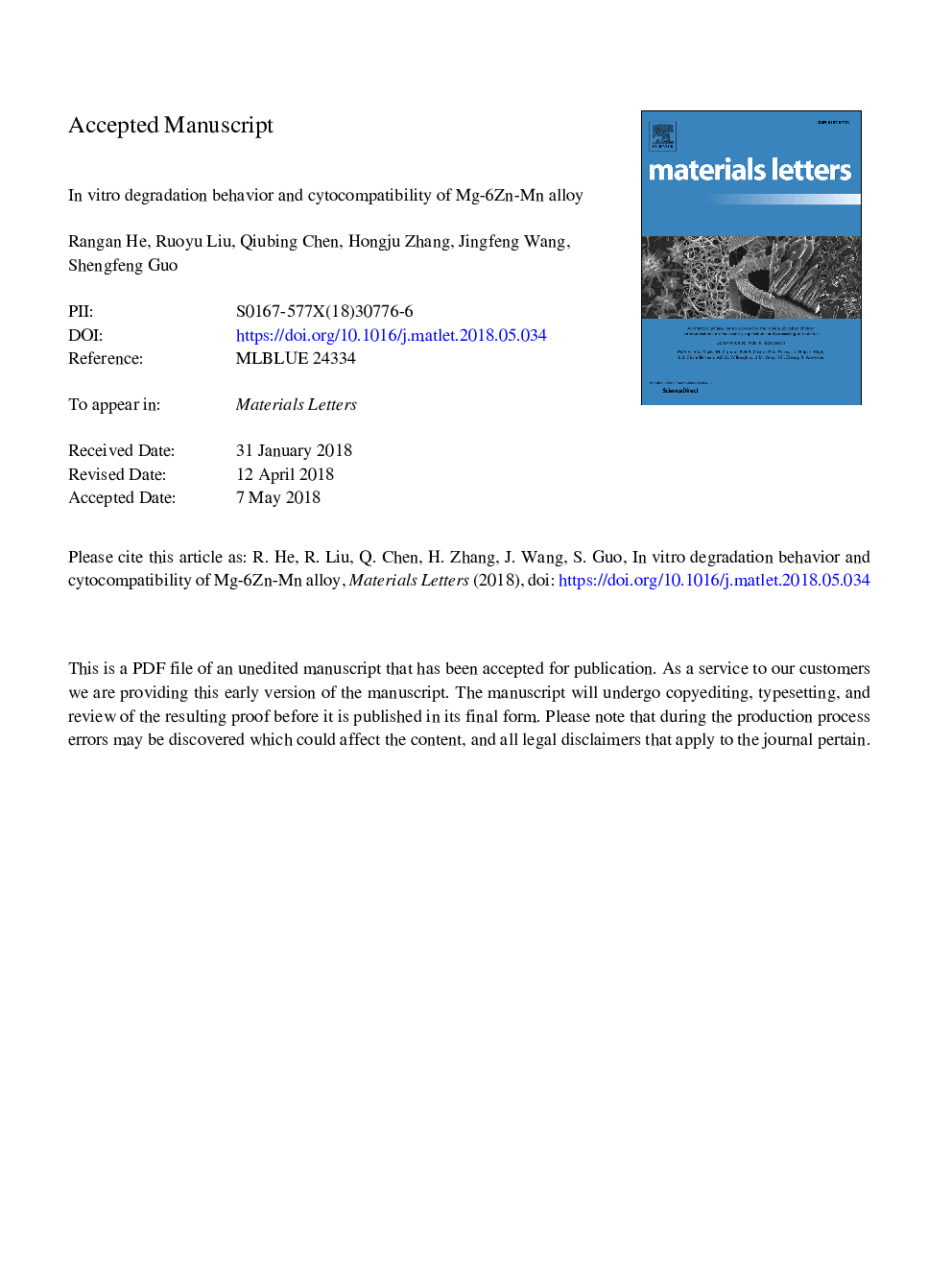| Article ID | Journal | Published Year | Pages | File Type |
|---|---|---|---|---|
| 8012518 | Materials Letters | 2018 | 10 Pages |
Abstract
In vitro degradation behavior and biological performance of the extruded and aged Mg-6Zn-Mn alloys were investigated by electrochemical measurement, immersion test, cell culture cytotoxicity test, and hemolytic ability evaluation. The electrochemical corrosion indicates that the extruded alloy shows a better bio-corrosion resistance in simulated body fluid (SBF) solution than that the aged counterpart. Immersion test for one month revealed the corrosion rate of the extruded and aged alloys to be only 1.01â¯Â±â¯0.10â¯mm/year and 1.26â¯Â±â¯0.13â¯mm/year, respectively. The cytotoxicity test shows no significant deleterious effects on human umbilical vein endothelial cells (HUVECs) for Mg-6Zn-Mn alloys, indicating a good in vitro cytocompatibility. The hemolysis rates of the extruded and aged alloys are far lower than the safe value of 5% according to ISO 10993-4, which suggests that the present Mg-6Zn-Mn alloys are promising materials for biodegradable implants.
Related Topics
Physical Sciences and Engineering
Materials Science
Nanotechnology
Authors
Rangan He, Ruoyu Liu, Qiubing Chen, Hongju Zhang, Jingfeng Wang, Shengfeng Guo,
